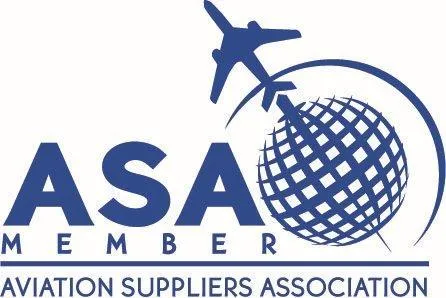
The Hidden Cost of Aircraft Parts Tariffs on Maintenance Programs
Tariffs on aircraft parts create hidden costs that ripple through maintenance programs across the aviation industry. These tariffs impact not only pricing but also supply chain reliability, influencing operational efficiency and long-term planning. Though policies consistently change, especially those related to tariffs and taxation, airlines and MROs face challenges managing budgets while ensuring compliance and airworthiness. Understanding the depth of these effects is essential to optimizing maintenance strategies and controlling expenses.
Maintenance programs rely heavily on timely, affordable access to quality aircraft parts. Tariffs increase costs and may disrupt supply chains, causing delays that affect fleet availability. Organizations must adapt to these economic pressures without compromising safety or regulatory standards. Navigating this complex environment demands a strategic approach to parts sourcing and documentation.
Increased Aircraft Parts Costs Impacting Maintenance Budgets
Tariffs on aircraft parts raise the direct cost of replacement components, squeezing maintenance budgets. These increased expenses often force airlines to allocate more capital toward parts acquisition, limiting funds for other critical areas. Delays caused by tariff-related supply chain issues can extend aircraft downtime, reducing overall operational efficiency. Maintaining compliance requires thorough traceability of parts, which can become more challenging under strained budgets.
Higher parts costs contribute to longer maintenance cycles as operators delay non-urgent repairs. This postponement can lead to escalated risks, affecting aircraft reliability and safety. The increased financial burden may also reduce the incentive for proactive maintenance, further risking airworthiness. Effective management of parts procurement and documentation becomes vital in offsetting these hidden costs.

Tariff-induced price volatility complicates forecasting and budgeting for maintenance programs. Fluctuating tariffs disrupt cost predictability, making it difficult for airlines and MROs to plan long-term. Financial uncertainty often leads to cautious spending, impacting the availability of essential parts. Transparent, accurate data about parts history and pricing supports better decision-making in this volatile landscape.
Companies must balance cost control with maintaining stringent safety and compliance standards. The interplay between financial constraints and regulatory demands challenges maintenance teams worldwide. Accurate data governance and traceability systems play a critical role in this balancing act. Strong documentation ensures maintenance decisions are informed, reducing the risk of unapproved or counterfeit parts.
Supply Chain Disruptions and Operational Delays
Tariffs can trigger supply chain bottlenecks, delaying the delivery of critical aircraft parts. Such disruptions jeopardize scheduled maintenance, forcing unplanned downtime and rescheduling of flights. The aviation supply chain’s complexity requires robust tracking and documentation to mitigate these challenges. Delays increase operational costs and risk non-compliance with regulatory inspections.
Unpredictable parts availability creates challenges for maintenance planners, increasing pressure to source alternatives quickly. Emergency orders and expedited shipping often incur higher costs, compounding the financial impact of tariffs. The risk of obtaining unverified or counterfeit parts grows when sourcing from less reliable suppliers. Ensuring traceability helps maintain quality control and regulatory adherence amid these pressures.
Supply chain issues extend beyond pricing, affecting relationships with trusted suppliers. Tariffs may prompt some operators to seek new vendors in lower-tariff regions, risking transparency. Loss of supplier consistency can degrade maintenance quality and complicate documentation efforts. Accurate, digitized records provide visibility into part provenance and lifecycle, crucial for managing these risks.
Regulators increasingly focus on supply chain integrity during audits and inspections. Demonstrating rigorous parts traceability has become a compliance requirement and a safeguard against operational disruptions. Effective data governance can detect anomalies quickly, preventing the installation of unapproved parts. Transparency strengthens confidence in parts management despite external tariff challenges.
The Role of Data Governance in Managing Aircraft Parts Tariff Impacts
Data governance underpins the ability to manage aircraft parts through fluctuating tariff environments effectively. Well-organized, digitized records reduce administrative overhead and speed parts verification during procurement. Accurate data ensures compliance with import/export regulations affected by tariff changes. Strong data governance supports operational agility when adapting to evolving economic policies.
Digitally traceable records allow rapid identification of parts’ origin, cost history, and compliance status. These capabilities help maintenance teams validate parts during inspections, ensuring only approved components are installed. Effective data governance minimizes risks of counterfeiting, a common issue exacerbated by tariff pressures. Clear, comprehensive documentation streamlines audits, reducing downtime and penalties.
The cost of poor data management becomes apparent when tariffs cause supply disruptions. Incomplete or inaccurate records lead to delays in parts clearance through customs and regulatory bodies. Delays can cascade into longer maintenance schedules and higher operating costs. Advanced digital solutions enhance data integrity, accelerating parts clearance and availability.
Data governance also enables predictive analytics, allowing operators to forecast tariff impact on parts availability and costs. Strategic insights derived from data help plan maintenance activities around potential supply constraints. Proactive planning reduces unexpected disruptions and optimizes resource allocation. Comprehensive records create a foundation for resilient, tariff-aware maintenance programs.
Compliance Challenges Amid Tariff Fluctuations
Tariff changes complicate compliance efforts by adding layers of regulatory complexity to aircraft parts management. Operators must navigate diverse international regulations that intersect with customs tariffs. Maintaining airworthiness certifications depends on detailed documentation and verifiable traceability of parts. Compliance failures can result in fines, grounding of aircraft, or safety risks.
Economic pressure from tariffs might tempt some organizations to use lower-cost parts with insufficient documentation. Such choices increase the risks of installing unapproved or counterfeit components. Ensuring compliance requires robust data governance systems to authenticate parts’ provenance and condition. Meticulous record-keeping protects operators during audits and lease transitions.

Customs and import regulations may vary rapidly following tariff policy updates. Keeping pace with these changes demands flexible and up-to-date compliance processes. Digitized records facilitate quick adaptation to new rules, reducing administrative burdens. Accurate data supports timely reporting and regulatory filings, essential for operational continuity.
Auditors and regulatory authorities increasingly require electronic records for inspections. Paper-based or fragmented documentation risks non-compliance and delays. Digital traceability platforms provide verifiable histories for every part, supporting transparency. Strong data governance integrates tariff compliance within broader aviation maintenance programs.
Strategies for Mitigating Tariff Risks in Parts Procurement
Developing strategic procurement plans helps airlines and MROs mitigate the risks associated with tariffs. Diversifying supplier bases can reduce dependence on high-tariff regions, improving cost stability. Prioritizing suppliers with strong data governance practices ensures reliable documentation and traceability. Collaborative partnerships increase supply chain resilience against tariff shocks.
Bulk purchasing ahead of tariff increases can provide temporary cost relief but requires storage capacity and inventory management. Accurate parts lifecycle data informs optimal stock levels, avoiding over- or under-stocking. Predictive analytics assist in timing purchases to minimize tariff exposure. Digitized records streamline these processes, reducing financial risks.
Leveraging technology to track tariff changes and parts compliance enables proactive responses. Real-time data monitoring alerts maintenance teams to regulatory updates affecting procurement. Integration of digital traceability reduces human error, enhancing procurement accuracy. Such systems support faster decision-making and minimize exposure to tariff-related disruptions.
Investing in comprehensive digital solutions strengthens overall maintenance program efficiency. Automated back-to-birth traceability platforms ensure that the complete parts history is accessible instantly. These tools improve audit readiness and lease transition speed. The integration of data governance within parts procurement addresses both tariff challenges and compliance requirements.
Strengthening Maintenance Programs Against Tariff Challenges
The impact of aircraft parts tariffs extends far beyond sticker prices, influencing maintenance schedules, compliance, and operational costs. Addressing these hidden costs requires a comprehensive approach focused on data governance and digital traceability. Strong documentation systems reduce risks related to unapproved parts and supply chain delays. Strategic procurement and advanced technology create resilience in fluctuating tariff environments.
Organizations that invest in reliable, automated data governance platforms will gain competitive advantages through improved compliance and cost control. Enhanced transparency supports faster maintenance turnarounds and better audit performance. Contact us to learn how ProvenAir’s digital traceability solutions can optimize your aircraft parts management and protect your maintenance programs from tariff disruptions.


